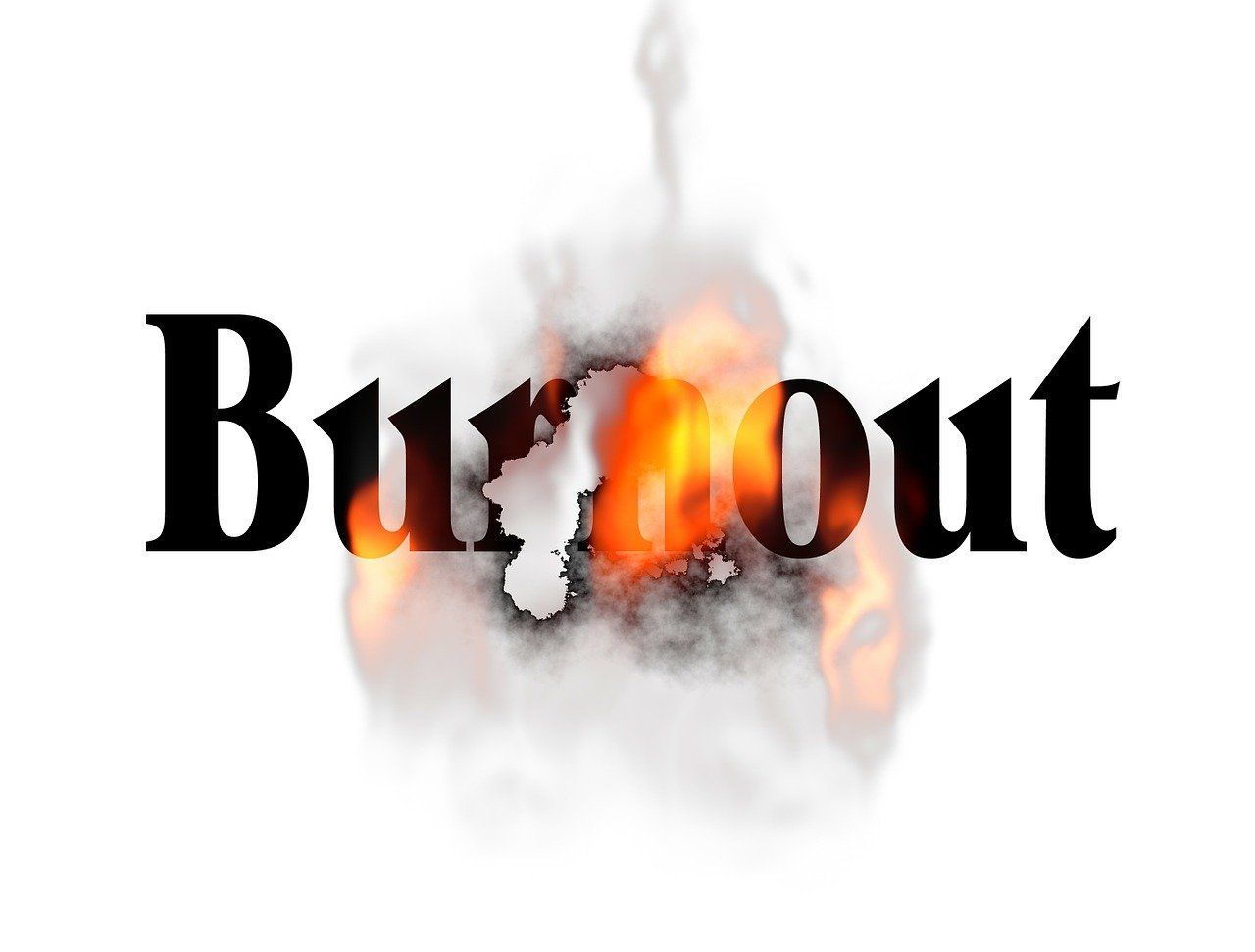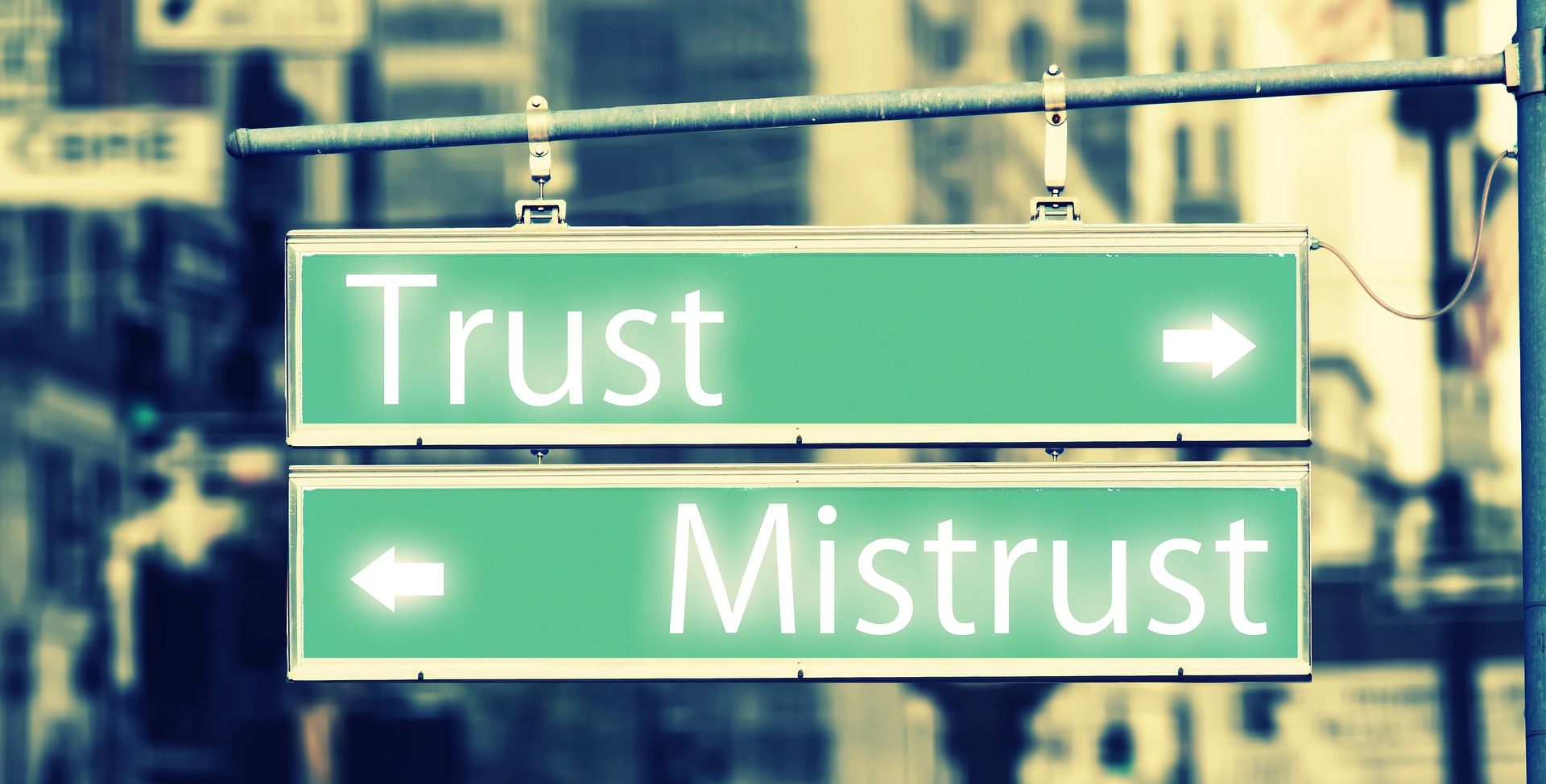Blog
Read Some of our blogs

By Lora Newman
•
April 1, 2025
If you’re a small business owner, chances are you’ve been taught that success comes from hustle, sacrifice, and saying “yes” to opportunities that come along. Sound familiar? Here’s the problem: more effort doesn’t always lead to more results—especially when your time, energy, and focus are stretched across too many things. The real key to sustainable success? Strong boundaries. Boundaries: The Secret Ingredient to Working Smarter (Not Just Harder) Boundaries aren’t about building walls or shutting people out. They’re about getting clear—on your priorities, your energy, your time, and your values. When you’re clear on what matters most, you stop wasting time on distractions, burnout routines, and reactive decision-making. You start moving with intention. And that’s when results get easier, faster, and more aligned with the business—and life—you actually want. You are clear on what to focus on and quickly say, "no" to. Here’s how strong boundaries give you the edge: 1. You Protect Your Most Valuable Asset: Your Energy You only have so much energy in a day. Without boundaries, you give it away in small, draining ways—answering emails at midnight, saying yes to clients who aren't a fit, or overloading your schedule until you’re running on fumes. With boundaries, you preserve energy for what matters most—your highest-impact work, your most aligned clients, your big-picture strategy. 2. You Make Better, Faster Decisions Strong boundaries eliminate decision fatigue. You don’t waste energy wondering, “Should I take this on?” or “How do I say no?” You already know what’s a yes—and what’s not. That clarity sharpens your focus and accelerates your momentum. 3. You Attract the Right Clients and Opportunities When your boundaries are strong, you stop people-pleasing and start positioning yourself as a confident leader. That shift is magnetic. You attract clients who respect your time, trust your process, and are ready to invest—not just financially, but emotionally and energetically. 4. You Reclaim Time Without Sacrificing Results Boundaries help you structure your time intentionally. You stop filling every gap with busywork, and start designing your week around what really drives results—strategic action, revenue-generating tasks, recovery, and even (gasp!) free time. Yes, you can rest and still run a successful business. Ready to Build Boundaries That Work as Hard as You Do? If you're tired of feeling overextended and want to start working with more ease, clarity, and confidence, I’ve created something just for you: 👉 Boundaries for Success: Protect Your Time, Energy & Wellbeing This class is designed for business owners who are ready to: ✔ Reclaim their time and mental bandwidth ✔ Set boundaries that actually stick ✔ Avoid burnout while still reaching big goals ✔ Create more freedom and better results—with less stress Inside the class, you’ll explore twelve key areas where boundaries matter most in life and business. You’ll walk away with a clearer picture of where your boundaries are at risk and how to strengthen them without guilt or fear. Because you didn’t build your business to feel exhausted. You built it for freedom, impact, and fulfillment. Let’s make sure your boundaries support that. 👉 Join Boundaries for Success now Boundaries Don’t Hold You Back. They Move You Forward. The most successful business owners aren’t the ones doing everything. They’re the ones doing the right things—and protecting the space they need to do them well. When your boundaries are strong, your results don’t just improve—they come with less stress, more ease, and far more joy. You in?

By Lora Newman
•
March 10, 2025
Burnout is real, and it’s costing businesses millions. A recent article from Fast Company highlights research showing that burnout-related costs can reach an astonishing $5 million per year for companies, with the financial burden ranging between $4,000 and $21,000 per employee. That’s a staggering price to pay for ignoring one fundamental truth: more isn’t always better. In both life and business, pushing yourself—or your employees—beyond reasonable limits doesn’t lead to higher productivity; it leads to exhaustion, disengagement, and ultimately, collapse. Imagine a horse carrying too much weight. At first, the horse may struggle forward, but eventually, buckles under the load. People are no different. Without clear boundaries, you risk not only your own well-being but also the effectiveness and longevity of our work, not to mention the relationships that are important to you. Burnout Hits Business Owners Too While much of the conversation around burnout focuses on employees, business owners and entrepreneurs are equally—if not more—vulnerable. Running a business means wearing multiple hats, often working long hours, and feeling a constant pressure to succeed. The weight of decision-making, financial uncertainty, and the need to "always be on" can quickly lead to mental and physical exhaustion. Business owner burnout manifests in ways similar to employee burnout, including chronic fatigue, decision fatigue, loss of passion for the business, and even a decline in creativity and problem-solving ability. Without clear boundaries, entrepreneurs risk becoming trapped in a cycle of overwork that not only affects health but also threatens the long-term sustainability of the business. The irony? Many business owners start their ventures seeking freedom—only to find themselves working more than ever before, often with fewer safeguards in place to prevent burnout. Why Boundaries Matter Boundaries are the invisible yet essential limits that protect our energy, time, and mental health. They define what we are willing to take on, how we engage with others, and how we maintain balance between work and personal life. When boundaries are weak or ignored, stress builds, productivity declines, and relationships—both professional and personal—suffer. The Fast Company article emphasizes that burnout isn’t just about overwork; it’s about a lack of autonomy, unclear expectations, and emotional exhaustion. Employees who feel overwhelmed, unsupported, or unable to disconnect from work are at the highest risk. The same applies to business owners who don't set clear limits for themselves. Organizations and entrepreneurs who prioritize boundaries and well-being see higher engagement, stronger retention, and better overall performance. Recognizing the Warning Signs of Burnout Burnout doesn’t happen overnight. It builds gradually, showing up in subtle but critical ways: Chronic exhaustion – Feeling drained, even after a full night’s rest. Decreased motivation – A loss of enthusiasm for work or once-enjoyable tasks. Irritability and cynicism – Increased frustration, negativity, or detachment. Declining performance – Struggling to focus, complete tasks, or make decisions. Physical symptoms – Headaches, muscle tension, and a weakened immune system. Ignoring these signs can lead to more serious health consequences, from anxiety and depression to long-term physical ailments. For business owners, burnout can also result in poor leadership decisions, strained client relationships, and, in the worst cases, the failure of the business itself. How to Set Stronger Boundaries and Prevent Burnout Whether you’re a leader, an entrepreneur, or an employee, setting and respecting boundaries is essential for long-term success. Here’s how to start: Define Your Limits – Identify what drains your energy and where you need more structure. This includes workload, availability, and emotional capacity. Communicate Clearly – Express your boundaries with confidence. Whether it’s limiting after-hours emails or setting realistic project timelines, clarity is key. Schedule Recovery Time – Just as an athlete needs rest between training sessions, you need time to recharge. Prioritize breaks, personal time, and non-work activities. Learn to Say No – Overcommitment is a fast track to burnout. Practice saying no to tasks that don’t align with your priorities or stretch you too thin. Delegate and Outsource – Business owners often try to do it all. Letting go of certain tasks—whether through hiring, automation, or delegation—can free up mental space and prevent burnout. Support a Culture of Boundaries – If you’re a leader, model healthy boundary-setting in your workplace. Encourage employees to disconnect, set clear expectations, and respect personal time. Boundaries Are an Investment, Not a Luxury Setting boundaries isn’t selfish—it’s smart. It protects your well-being, strengthens relationships, and enhances performance. For businesses, fostering a boundary-conscious culture isn’t just about reducing burnout costs; it’s about creating an environment where people can thrive. For business owners, boundaries are the key to sustaining passion and energy over the long haul, rather than burning out before reaching their goals. So before you pile more onto your load—or someone else’s—ask yourself: is this sustainable? Or are you at risk of buckling under the weight? Prioritizing boundaries today is the key to long-term success tomorrow. If you're ready to shore up your own boundaries, check out this upcoming class Boundaries For Success: Protect Your Time, Energy, and Wellbeing. OR Take it a step farther into building a culture of boundaries and strategies to increase profitability and productivity with Leadership In Motion with Missouri State University.

By Lora Newman
•
February 28, 2025
As both a mental health professional and a trained coach, I have spent months helping people manage anxiety—anxiety largely fueled by the media. What started as a pattern in my clients soon became a personal journey into research, fact-checking, and a growing awareness of the role misinformation plays in our emotional well-being. At first, I didn’t believe that major news outlets would report outright falsehoods. But then it happened in front of me—multiple times. I would hear a report, whether from a client or a major media source, and something wouldn't sit right. So, I started looking things up. I would listen to full replays of hearings and speeches, and dig through primary sources. Over and over again, I found that what was reported as fact was either misleading, exaggerated, or outright false. Worse still, I rarely saw corrections or retractions. The damage had already been done. People were left stressed, fearful, or angry—reactions that could have been avoided had they been given the truth from the start. This is deeply irresponsible journalism, and it has real consequences for mental health. Fear and anger are powerful tools for manipulation, and the more emotionally charged we are, the easier we are to influence. It’s no wonder that so many people feel overwhelmed, anxious, and unsure of what to believe. Protecting Your Mental Health in a Time of Misinformation With so much happening in the world, it's more important than ever to take care of your mental health. Here are a few steps you can take to safeguard your peace of mind: Unplug from the headlines. Limit your exposure to sensational news. Constantly checking updates keeps your nervous system in a heightened state of stress. Engage in relaxing activities. Spend more time outdoors, with loved ones, or in hobbies that bring you joy. Your mental well-being is more important than staying on top of every breaking story. Question extreme narratives. If a report sounds shocking or emotionally charged, take a step back and look deeper. Who benefits from you feeling afraid or outraged? Do your own research. If something upsets you, take time to verify the facts. Go to primary sources, listen to full speeches, and seek out a variety of perspectives. You may find that your fears were unfounded—or that there’s more to the story than you were led to believe. You may feel you don't have the time to do this. It amazed me how much source information I can take in while getting ready in the mornings, driving to a meeting, etc... Remember that you are in control. The media thrives on attention. You don’t have to engage with every headline or let every news story dictate your mood. You have the power to choose where to place your focus. In a world filled with noise and conflict, taking care of your mental health requires intentionality. When you become stressed, your thinking performance, decision making, and productivity drop dramatically. If you are leading teams, you need to be on your game instead of distracted by irresponsible reporting. Stay informed, but don’t let misinformation steal your peace. Seek truth, but also seek balance. Your well-being is worth it. Here is an article from GALLUP reflecting a decline in the trust of media. Gee, I wonder how that happened?!
Call (417) 844-6283 today to contribute to our Blog
BUSINESS HOURS
Wednesday 9 AM – 5 PM
Thursday 9 AM – 5 PM
Friday 9:30 AM – 5 PM
Saturday Closed
Sunday Closed
Monday 9 AM – 5 PM
Tuesday 9 AM – 5 PM
Content, including images, displayed on this website is protected by copyright laws. Downloading, republication, retransmission or reproduction of content on this website is strictly prohibited. Terms of Use
| Privacy Policy







